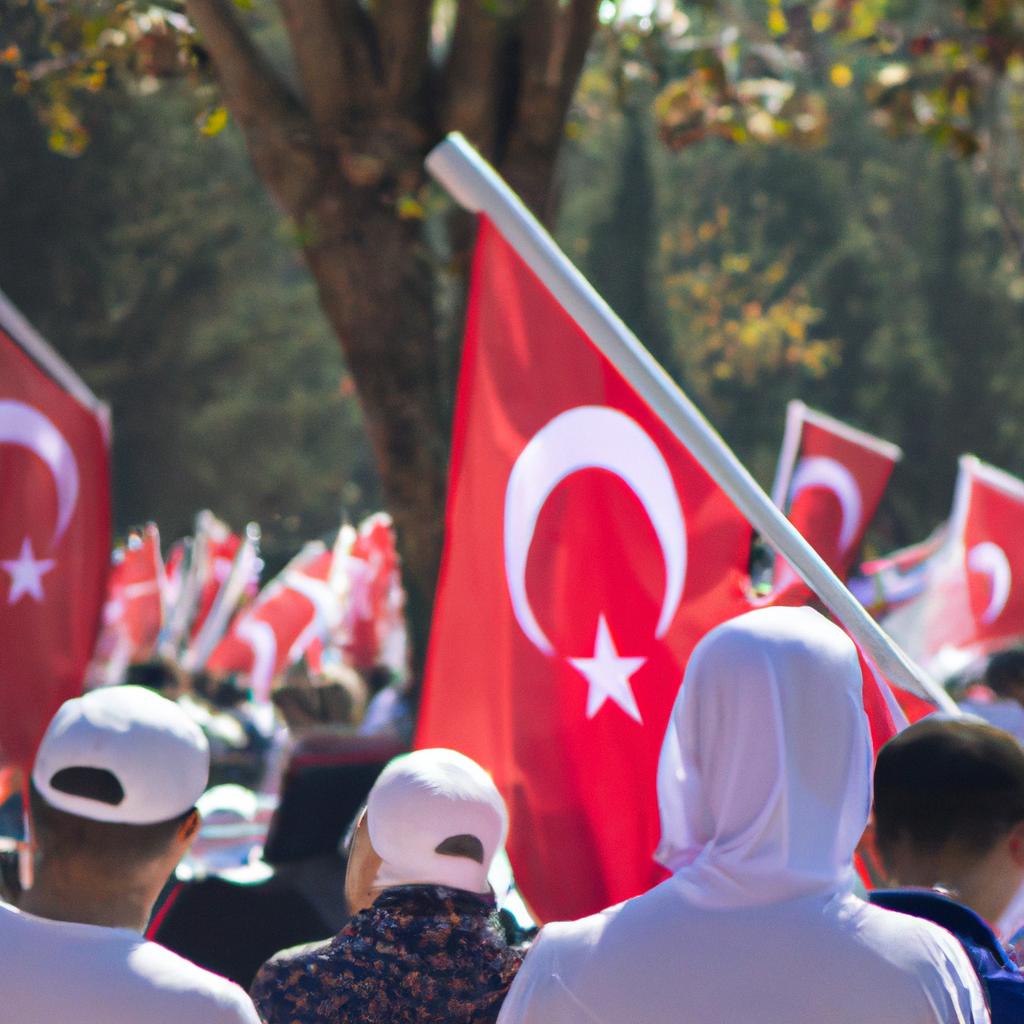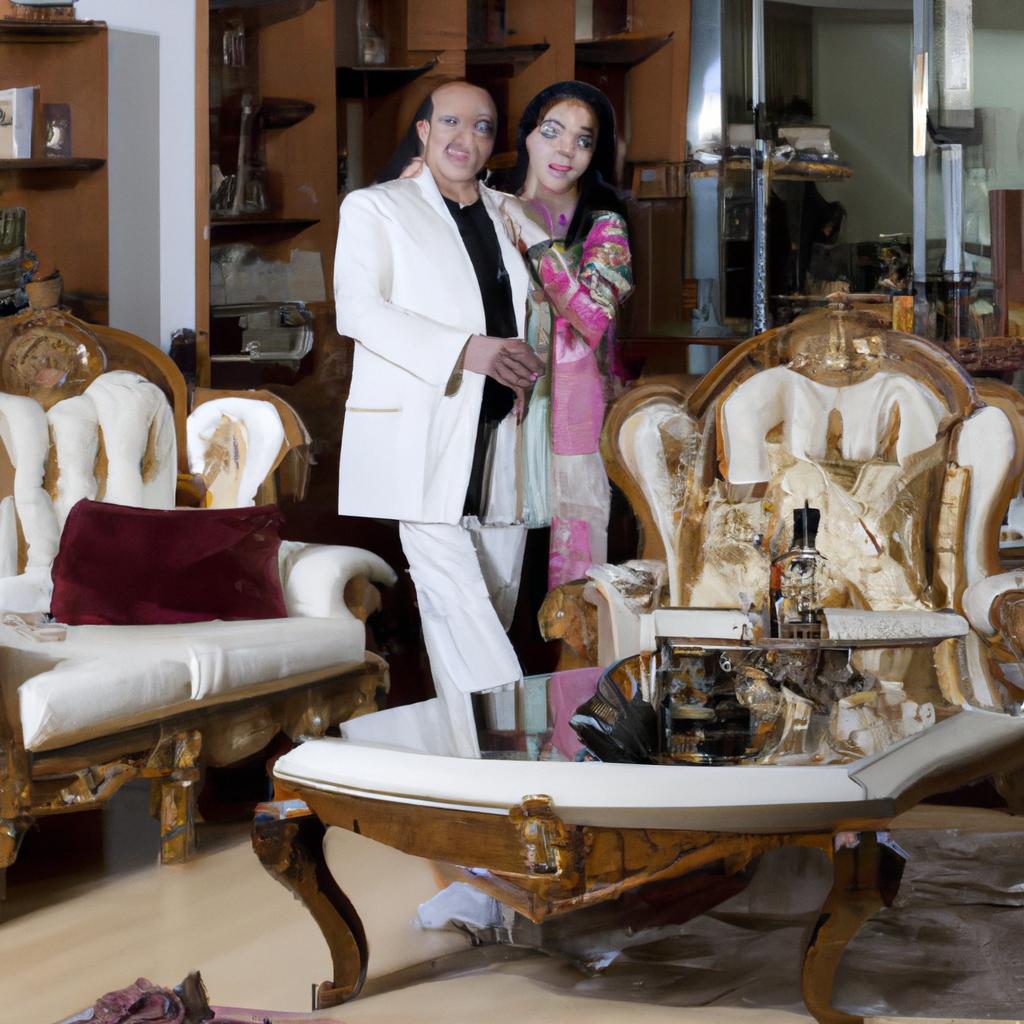Turkey’s cultural history spans centuries, but the term “White Turks” is a relatively recent addition. It refers to the country’s affluent and educated elite who have had a profound impact on Turkish society and politics. In this article, we’ll delve deeper into the definition of White Turks, explore their history and context in Turkey, and understand why comprehending them is important.
The Rise of White Turks: A New Elite
The term “White Turks” emerged during the democratization process of the 1950s and 1960s in Turkey. It described the urban, educated, and secular population holding influential positions in Turkish society. Many of them were descendants of the ruling class of the Ottoman Empire, granted access to higher education and westernized lifestyles.
White Turks were known for their modern and secular outlook, their rejection of traditional values, and their support for the westernization of Turkish society and politics. They played a vital role in establishing the Republic of Turkey and driving its secularization and modernization.
However, the term “White Turks” has faced criticism for its association with elitism and condescension towards non-White Turks. They have been accused of being disconnected from the realities of everyday life in Turkey, showing a lack of empathy towards marginalized groups.
Despite these criticisms, White Turks maintain a significant influence on Turkish politics. They are often affiliated with the Republican People’s Party (CHP), which has been the main opposition party in Turkey for many years. Conservative and nationalist groups often oppose their modern and secular perspectives.
Understanding White Turks is essential because they represent a considerable portion of the Turkish population and hold influential positions of power. Their beliefs and attitudes continue to shape the future of the country.
Characteristics of White Turks

White Turks showing their support for the secularist party
White Turks are often associated with several distinguishing characteristics that set them apart from other groups in Turkish society. These characteristics include socioeconomic status and education level, cultural and lifestyle preferences, political beliefs and affiliations, and attitudes towards religion and tradition.
Socioeconomic Status and Education Level
White Turks are typically urban and affluent, possessing higher education levels compared to the average Turkish citizen. They enjoy better job opportunities and higher salaries, which often translate into a more westernized lifestyle characterized by consumerism and materialism.
Cultural and Lifestyle Preferences
White Turks have a modern and secular outlook on life, favoring western cultural norms and lifestyles. They are more likely to speak English, consume western media, music, and fashion, and hold liberal attitudes towards gender roles, sexuality, and individual freedoms.
Political Beliefs and Affiliations
White Turks are often aligned with the CHP, a center-left political party in Turkey that emphasizes secularism, democracy, and social justice. They are generally supportive of democracy and human rights, while critical of authoritarianism and nationalism.
Attitudes Towards Religion and Tradition
White Turks exhibit a critical and skeptical attitude towards religion and traditional values. They are less religious than other groups in Turkish society and may be open to alternative spiritual practices. Traditional cultural practices are often deemed outdated and irrelevant to modern life.
These characteristics define White Turks and their position in Turkish society and politics. While they may be perceived as elitist or disconnected from everyday life, their impact on politics and culture cannot be ignored.
Criticisms of White Turks

A White Turk family indulging in fine dining
White Turks have faced significant criticism from various segments of Turkish society, particularly those who feel marginalized and left behind. Let’s explore some of the common criticisms associated with White Turks:
Perception of Elitism and Condescension Towards Non-White Turks
White Turks are often accused of exhibiting elitism and condescension towards non-White Turks, specifically those who do not share their modern and secular outlook. They are seen as disconnected from the realities of everyday life in Turkey, lacking empathy towards marginalized groups.
Lack of Empathy Towards Marginalized Groups
White Turks have been criticized for their perceived lack of empathy towards marginalized groups within Turkish society. They are seen as indifferent to the struggles faced by those who are less privileged and less fortunate, leading to a growing sense of resentment among certain segments of society.
Disconnection from Everyday Realities in Turkey
White Turks are often criticized for their disconnection from the realities of everyday life in Turkey. They are perceived as out of touch with the challenges faced by ordinary Turks, particularly those residing in rural areas or on the outskirts of urban centers. This has led to feelings of alienation and frustration among those who feel left behind by Turkey’s modernization and secularization processes.
In conclusion, White Turks have faced significant criticism from various groups in Turkish society. While they have played a vital role in shaping the country’s modernization and secularization, their perceived elitism, lack of empathy, and disconnection from everyday life have fueled resentment and alienation among some Turkish citizens.
The Influence of White Turks on Turkish Politics

A White Turk businessman on his way to an important meeting
White Turks have exerted a substantial influence on Turkish politics since their emergence in the 1950s and 1960s. They played a crucial role in modernizing and secularizing Turkish society while establishing the Republic of Turkey.
Driving Force Behind Modernization and Secularization in Turkey
White Turks spearheaded Turkey’s modernization and secularization, which began in the early 20th century. They believed that Turkey needed to adopt western values and practices to become a modern and prosperous society. They championed the adoption of western dress, education, and political systems, as well as the separation of religion from the state.
Their efforts proved successful, leading to the establishment of a secular republic in 1923, with Mustafa Kemal Atatürk as its first president. White Turks played a crucial role in implementing Atatürk’s reforms, modernizing Turkish society, economy, and politics. Their influence persists in Turkey today, with many of their values and practices still prevalent.
Role of White Turks in Founding and Dominance of the Republican People’s Party (CHP)
The Republican People’s Party (CHP) is Turkey’s oldest political party and has long served as the main opposition party. Founded in 1923 by Atatürk, the CHP initially held ruling power in Turkey. White Turks played a significant role in the party’s founding and dominance, with many members hailing from the educated and affluent elite.
The CHP advocated for a modern and secular outlook on life that aligned with the beliefs and attitudes of White Turks. They were instrumental in shaping the party’s policies and ideologies, which emphasized secularism, democracy, and social justice. The association between White Turks and the CHP remains strong, perpetuating their influence within the party to this day.
Opposition to White Turks from Conservative and Nationalist Groups
Despite their significant impact, White Turks have encountered opposition from conservative and nationalist groups within Turkey. These groups perceive White Turks as elite and disconnected from the realities of everyday life in Turkey. They accuse them of excessive westernization and a lack of empathy towards marginalized groups.
Opposition to White Turks has intensified in recent years with the rise of conservative and nationalist political parties in Turkey. These parties criticize White Turks for their modern and secular outlook, advocating for a return to more traditional and conservative values.
In conclusion, White Turks have exerted a significant influence on Turkish politics, driving modernization and secularization and participating in the founding of the Republic of Turkey. Their impact remains evident in Turkish politics today, as their beliefs and attitudes continue to shape the country’s future. However, they have also faced opposition from conservative and nationalist groups who view them as elitist and disconnected from everyday life in Turkey.
White Turks in Contemporary Turkey

A White Turk fashion influencer showing off the latest trends
In recent years, perceptions and attitudes towards White Turks in Turkey have undergone a significant shift. The definition of “White Turks” has expanded to include individuals from diverse backgrounds and cultures, reflecting a more inclusive perspective. The younger generation of White Turks exhibits open-mindedness, tolerance, and inclusivity, mirroring Turkey’s evolving social and political landscape.
The diversification and inclusivity within White Turks now encompass individuals from different socioeconomic backgrounds, cultures, and religions. The younger generation, in particular, embodies this diversity and inclusivity, mirroring the changing demographics and cultural fabric of Turkey.
There is a growing movement among White Turks to embrace diversity and inclusivity, advocating for equal representation and rights for marginalized groups. This movement is particularly strong among the younger generation, actively engaging with social and political issues and pushing for positive change within their communities.
However, challenges and criticisms persist, signaling the need for White Turks to reflect on their beliefs and attitudes and work towards fostering a more inclusive and tolerant society. Addressing these challenges head-on and striving for a more diverse and inclusive community in Turkey are imperative for White Turks.
In conclusion, the concept of White Turks has evolved since its inception in the 1950s and 1960s. Their significant role in shaping Turkish society and politics cannot be ignored. However, as Turkey continues to evolve and face new challenges, White Turks must adapt and work towards building a more diverse, inclusive, and tolerant society.
Conclusion

A White Turk couple enjoying the sun and sea on their private yacht
In conclusion, understanding the concept of White Turks is crucial to comprehending Turkish society and politics. White Turks represent an affluent and educated elite class that has played a significant role in Turkey’s modernization and secularization. Though they have faced criticism for elitism and disconnection, their beliefs and attitudes continue to shape Turkish politics.
As Turkey continues to evolve and confront new challenges, the role of White Turks in the country’s future remains uncertain. Nevertheless, acknowledging their influence on Turkish society and politics and striving for inclusivity and diversity within the White Turk community is essential.
At TooLacks, our aim is to provide informative and engaging content that covers a wide range of topics, including nature, gardening, and animals. We hope this article sheds light on the concept of White Turks and its significance in Turkish society and politics. Stay tuned for more informative articles from our team of expert writers.



